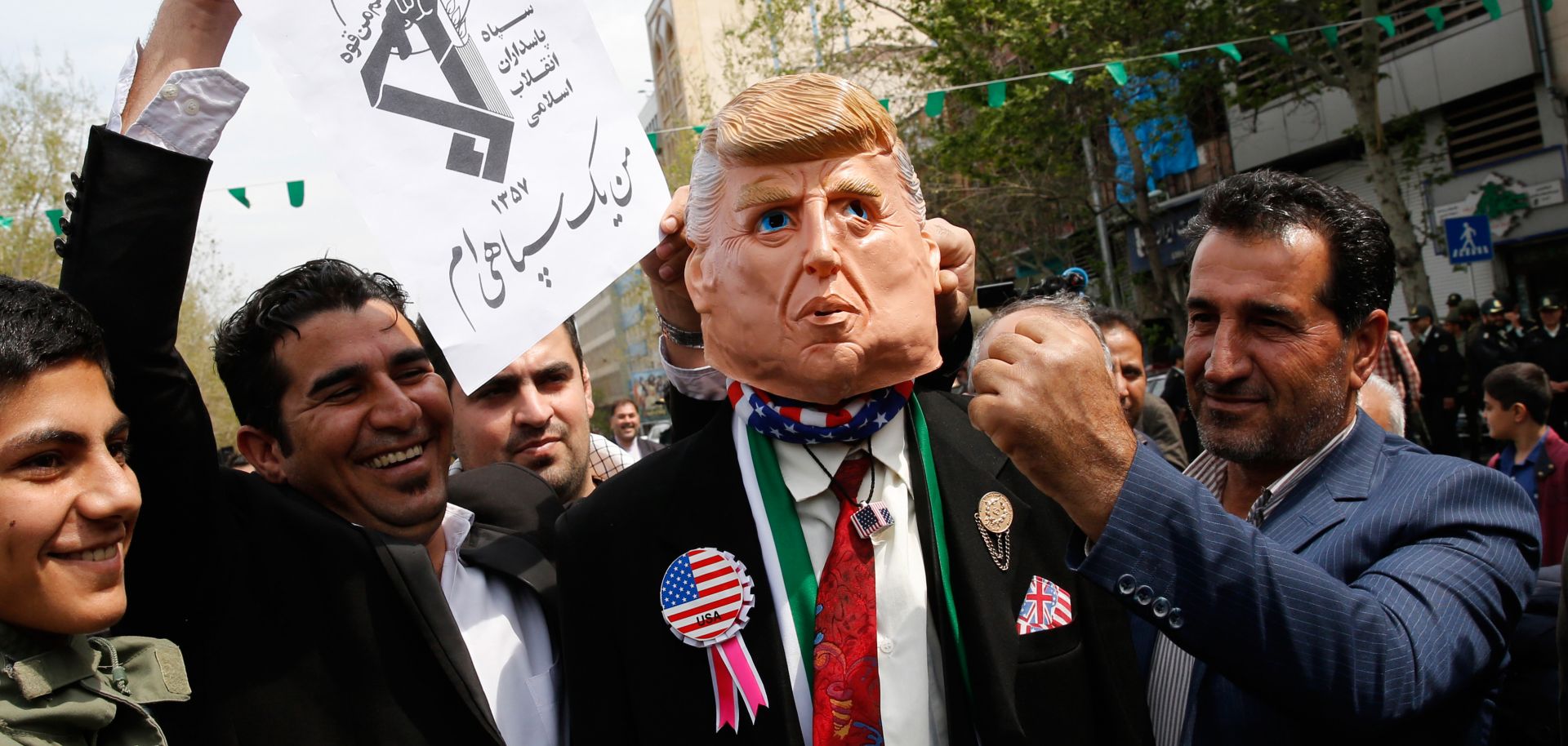ASSESSMENTS
Increasing U.S. Sanctions Pressure Raises the Risks of Iranian Retaliation
May 16, 2019 | 10:00 GMT

Iranians pretend to hit a man wearing a mask of US President Donald Trump during an anti-US rally following Friday prayers in Tehran on April 12, 2019. - Iranian President Hassan Rouhani this week accused the United States of being the real "leader of world terrorism", hitting back after Washington blacklisted Iran's Revolutionary Guards as a terrorist organisation. Tehran was quick to retaliate on Monday by declaring US troops "terrorists" following Washington's move, which was welcomed by Iran's regional arch-rivals Israel and Saudi Arabia.
(AFP/Getty Images)
Highlights
- Iranian retaliation against sanctions pressure would most like consist of cyberattacks.
- While a direct military response by Iran is less likely, U.S. companies and civilians in the region must still take the possibility into account.
- Iran's embassies, intelligence networks and proxies give it a global reach, though retaliation is more likely in the Middle East.
Subscribe Now
SubscribeAlready have an account?
